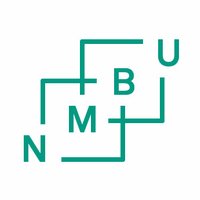The main goal of this project is to reveal the adaptive evolution and functional effect of structural variants in Atlantic salmon. To achieve this goal, the recruited PhD. student will collaborate with the ongoing Atlantic salmon genomics project team (Transpose) and functional genomics project team (SynchroSmolt) at CIGENE.
The main tasks are bioinformatics analyses of nanopore long-read sequencing data and other various omics data sets, working closely together with another PhD student. Specifically, but not limited to:
- Literature review
- Estimate the effect of structural variants on phenotypes and gene regulation by statistical genomics approach
- Identify the adaptively evolved variants by comparative genomics approach
- Publish solid peer-review papers
The successful candidate is expected to enter a plan for the progress of the work towards a PhD degree during the first months of the appointment, with a view to completing a doctorate within the PhD scholarship period. Presentation of findings at international conferences or/and attending international workshops/visiting relevant researchers are highly encouraged and financially supported.
Eligibility Criteria
The successful applicant must meet the conditions defined for admission to a PhD programme at NMBU. The applicant must have an academically relevant education corresponding to a five-year Norwegian degree programme, where 120 credits are at master's degree level. The applicant must have a documented strong academic background in genomics and be able to document proficiency in both written and oral English. For more detailed information on the admission criteria please see the PhD Regulations and the relevant PhD programme description. The applicant must document expertise and interest in the research subject.
Required Academic qualifications
- Master’s degree in genomics, bioinformatics, evolutionary genetics, or a similar field (120 credits).
- Experience with large genome data analysis
- Experience with command-line-based operation of the High-Performance Computing (HPC) system
- Experience/familiarity with R, Python, and other programming languages
- Statistical/population genomics knowledge (For example, PLINK, VCFTools, GCTA)
The following experiences and skills will be emphasized:
- Experience with RNA-sequencing, or eQTL, GWAS or similar functional genomics analysis (For example, DeSeq2, Kallisto, STAR)
You need to:
- Have good collaborative skills and high motivation. You will closely work with another PhD student.
- Work with initiative and creative views.
- Have analytical and academic approach to research questions.
- Be proficient in English, both written and spoken.
Fish genomics expertise and Norwegian language skill are NOT necessarily required at the time of application.
Offered Benefits
The position is placed in government pay scale position code 1017 PhD. Fellow. PhD. Fellows are normally placed in pay grade 54 (NOK 491.200,-) on the Norwegian Government salary scale upon employment and follow ordinary meriting regulations.
Employment is conducted according to national guidelines for University and Technical College PhD scholars.
Application Process
To apply online for this vacancy, please visit this page.
https://www.jobbnorge.no/en/available-jobs/job/209643/phd-scholarship-on-functional-and-evolutionary-genomics
Please do NOT send application material by email.
Publications should be included electronically within the application deadline. The relevant NMBU Department may require further documentation, e.g. proof of English proficiency. Master’s thesis in English may work.
If it is difficult to judge the applicant’s contribution for publications with multiple authors, a short description of the applicant’s contribution must be included.
Applications should include (electronically)
- A letter of intent includes:
* Why are you interested in this particular project?
* How can you contribute to the project based on your specific skillsets?
- Curriculum vitae + publication list
- Your sample SLURM script which does any genomics-related analysis.
- One-page A4 report which explains the mechanism/theory/analytical methods etc. of (A) “Polygenic adaptation” or (B) “splicing QTL”. You can include figures and formulas in the report.
- Your Master’s thesis if it is written in English.
- Copies of degree certificates and transcripts of academic records (all certified)
- At least two academic reference persons.

